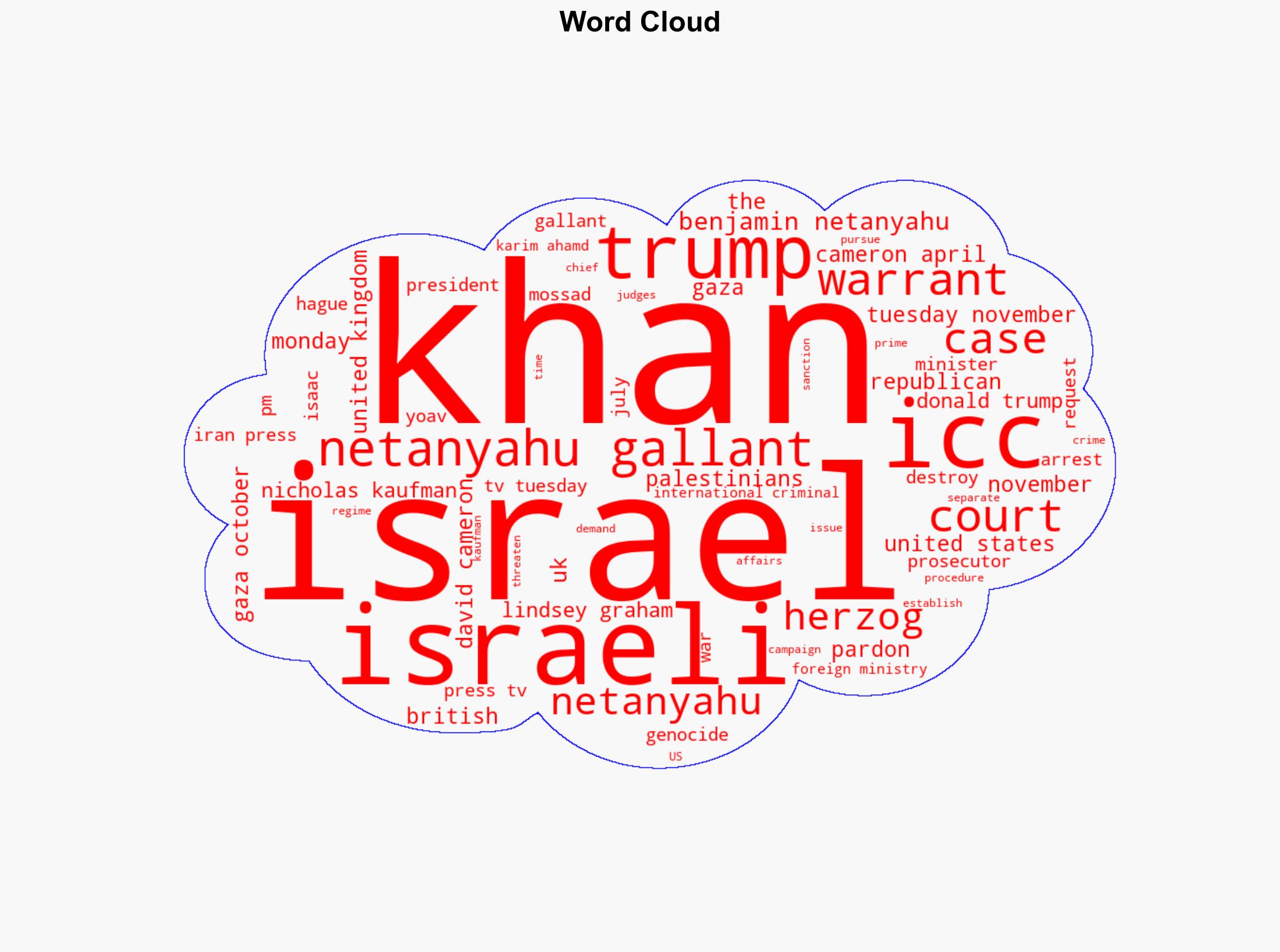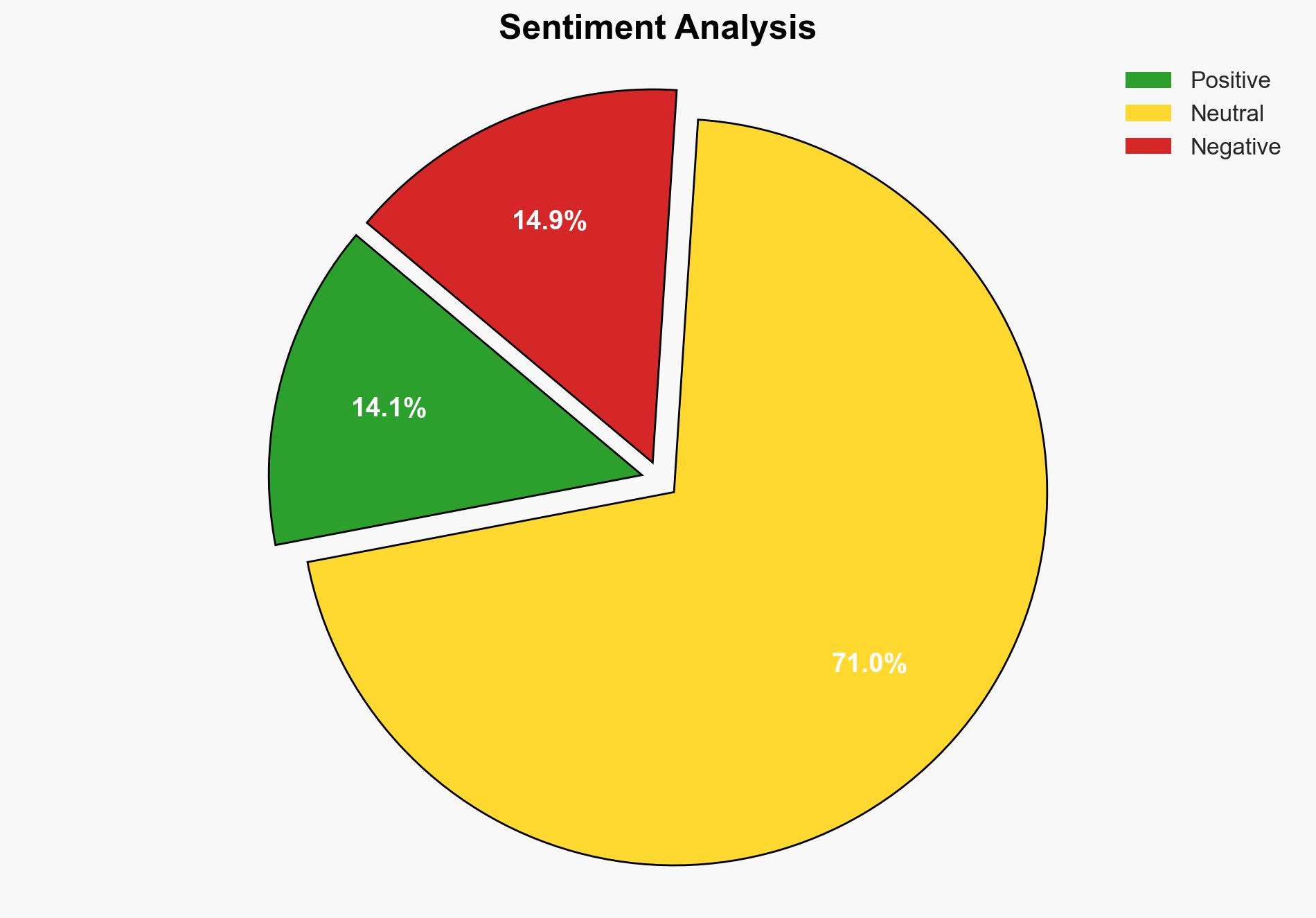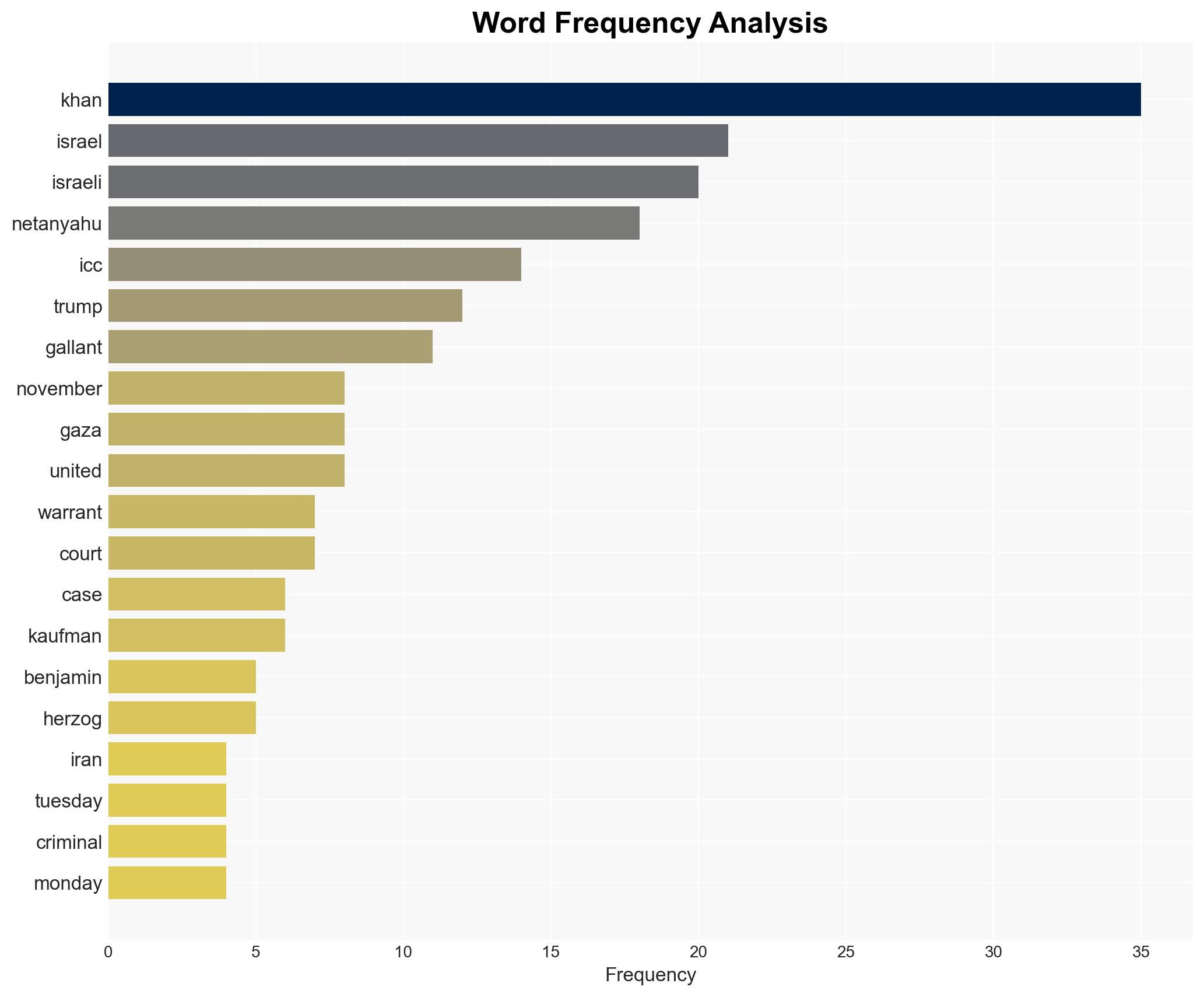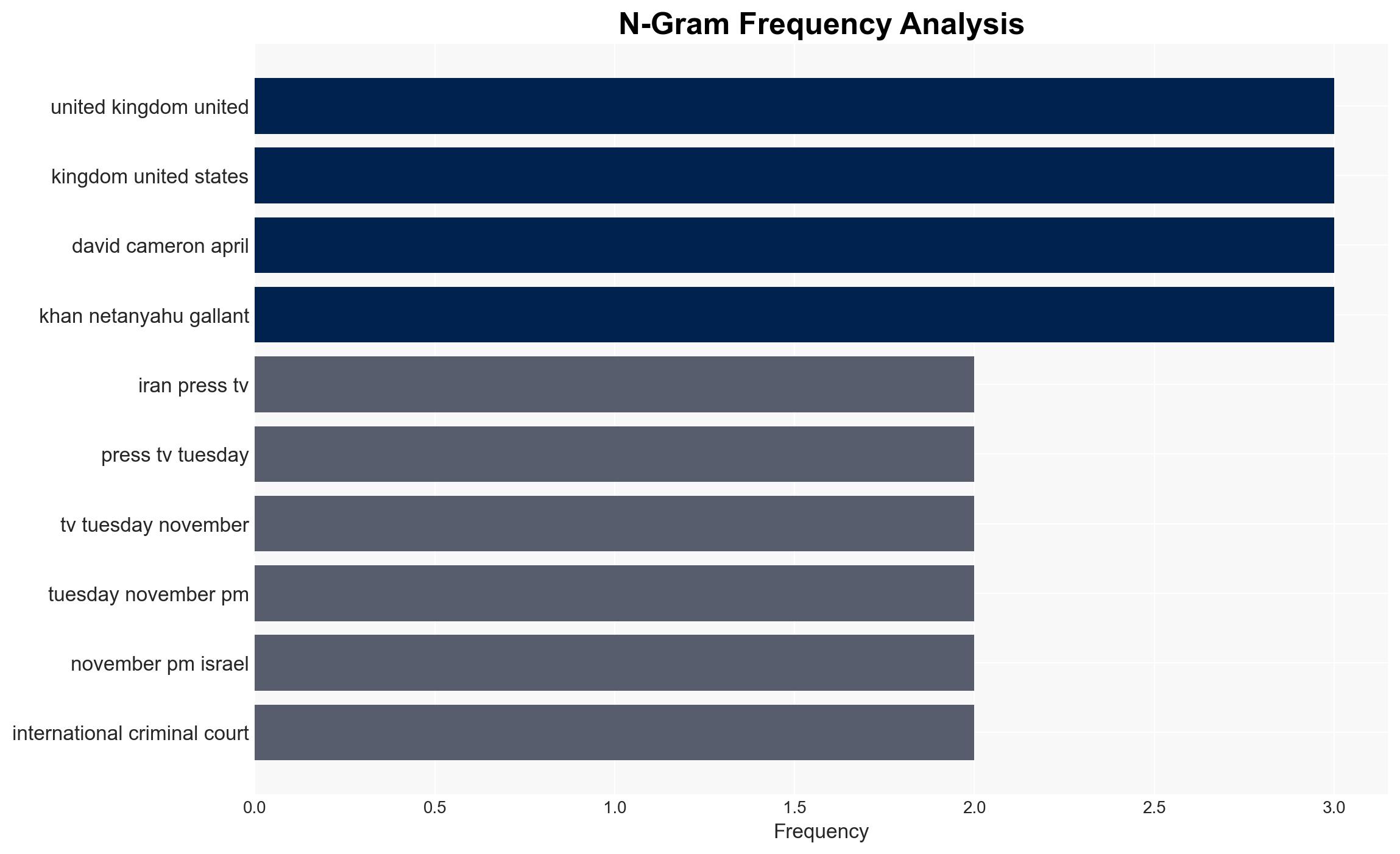Israel asks ICC to dismiss genocide case prosecutor revoke arrest warrants – Globalsecurity.org
Published on: 2025-11-19
AI-powered OSINT brief from verified open sources. Automated NLP signal extraction with human verification. See our Methodology and Why WorldWideWatchers.
Intelligence Report:
1. BLUF (Bottom Line Up Front)
With a moderate confidence level, the most supported hypothesis is that Israel’s actions are primarily aimed at undermining the credibility and functionality of the International Criminal Court (ICC) to prevent legal actions against its leaders. Recommended actions include diplomatic engagement with key stakeholders to uphold the ICC’s integrity and mitigate potential geopolitical tensions.
2. Competing Hypotheses
Hypothesis 1: Israel is seeking to delegitimize the ICC to avoid legal accountability for alleged war crimes and to protect its political and military leadership from international prosecution.
Hypothesis 2: Israel’s actions are a strategic maneuver to gain leverage in international negotiations, using the ICC case as a bargaining chip to extract concessions from Western allies.
The first hypothesis is more likely due to the direct actions taken by Israel to challenge the ICC’s authority and the historical context of its leaders facing legal scrutiny. The second hypothesis lacks substantial evidence of concurrent diplomatic negotiations that would support this interpretation.
3. Key Assumptions and Red Flags
Assumptions: It is assumed that Israel perceives the ICC as a legitimate threat to its leadership. There is also an assumption that Western allies have a vested interest in the outcome of this case.
Red Flags: The involvement of high-profile political figures and the use of intimidation tactics suggest potential bias and manipulation. The pressure on the ICC prosecutor and threats of sanctions indicate possible attempts to coerce judicial outcomes.
4. Implications and Strategic Risks
The undermining of the ICC could lead to a weakening of international legal norms, emboldening other states to disregard international law. Politically, this could strain Israel’s relations with Western allies, particularly if public opinion turns against perceived impunity. Economically, sanctions or reduced cooperation could impact Israel’s international trade and investment. Informationally, the narrative of intimidation could damage Israel’s global reputation.
5. Recommendations and Outlook
- Engage in diplomatic dialogue with Israel and Western allies to reinforce the importance of international legal institutions.
- Monitor for increased cyber activities targeting ICC or related entities as a form of asymmetric response.
- Best-case scenario: Israel retracts its demands, and the ICC proceeds with its investigations, maintaining its credibility.
- Worst-case scenario: The ICC’s authority is significantly undermined, leading to a breakdown in international legal cooperation.
- Most-likely scenario: Ongoing diplomatic tensions with periodic escalations, but no significant change in the ICC’s operations.
6. Key Individuals and Entities
Benjamin Netanyahu, Yoav Gallant, Karim Ahamd Khan, Isaac Herzog, Donald Trump, Lindsey Graham, Nicholas Kaufman, David Cameron.
7. Thematic Tags
Structured Analytic Techniques Applied
- Cognitive Bias Stress Test: Expose and correct potential biases in assessments through red-teaming and structured challenge.
- Bayesian Scenario Modeling: Use probabilistic forecasting for conflict trajectories or escalation likelihood.
- Network Influence Mapping: Map relationships between state and non-state actors for impact estimation.
Explore more:
National Security Threats Briefs ·
Daily Summary ·
Support us





